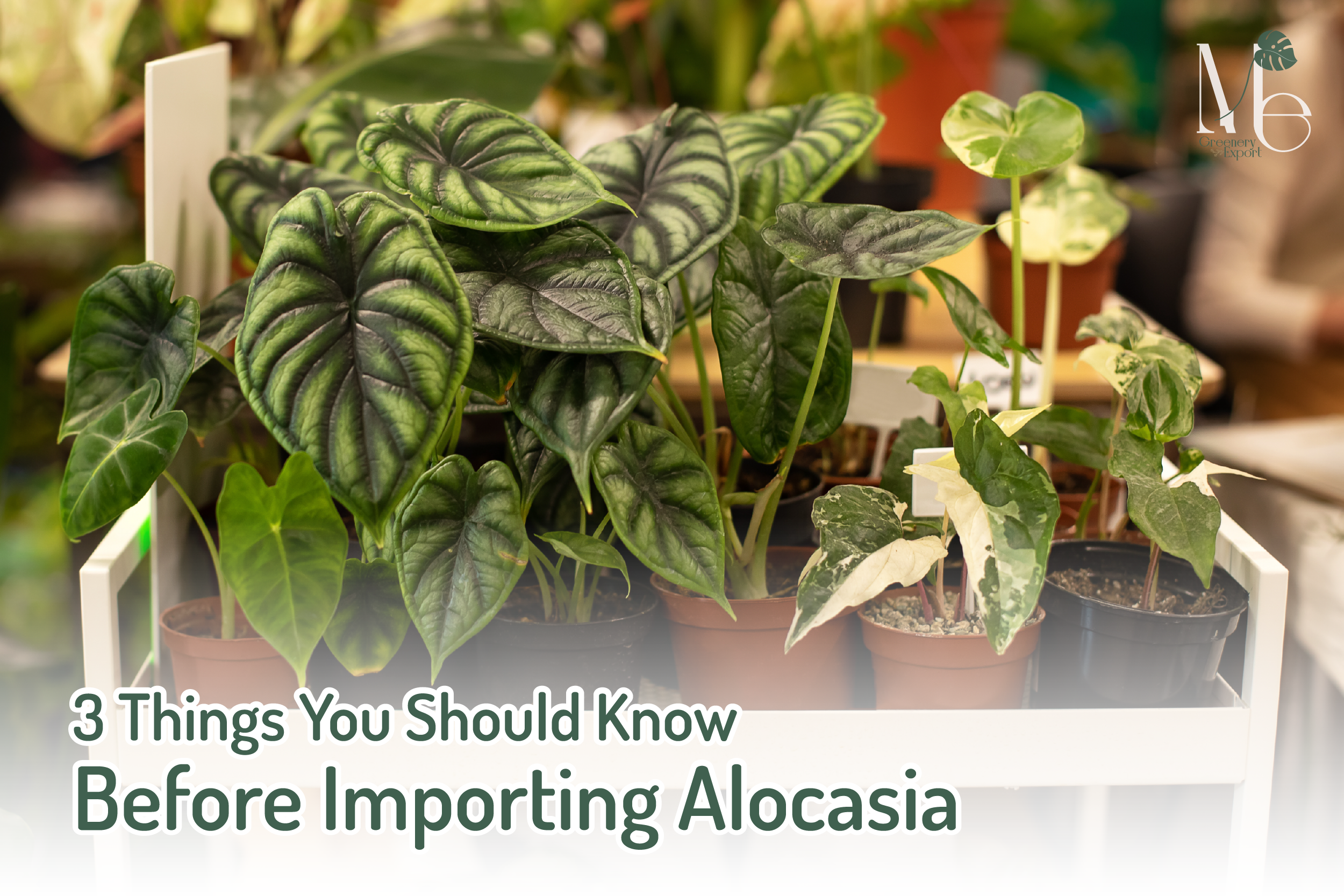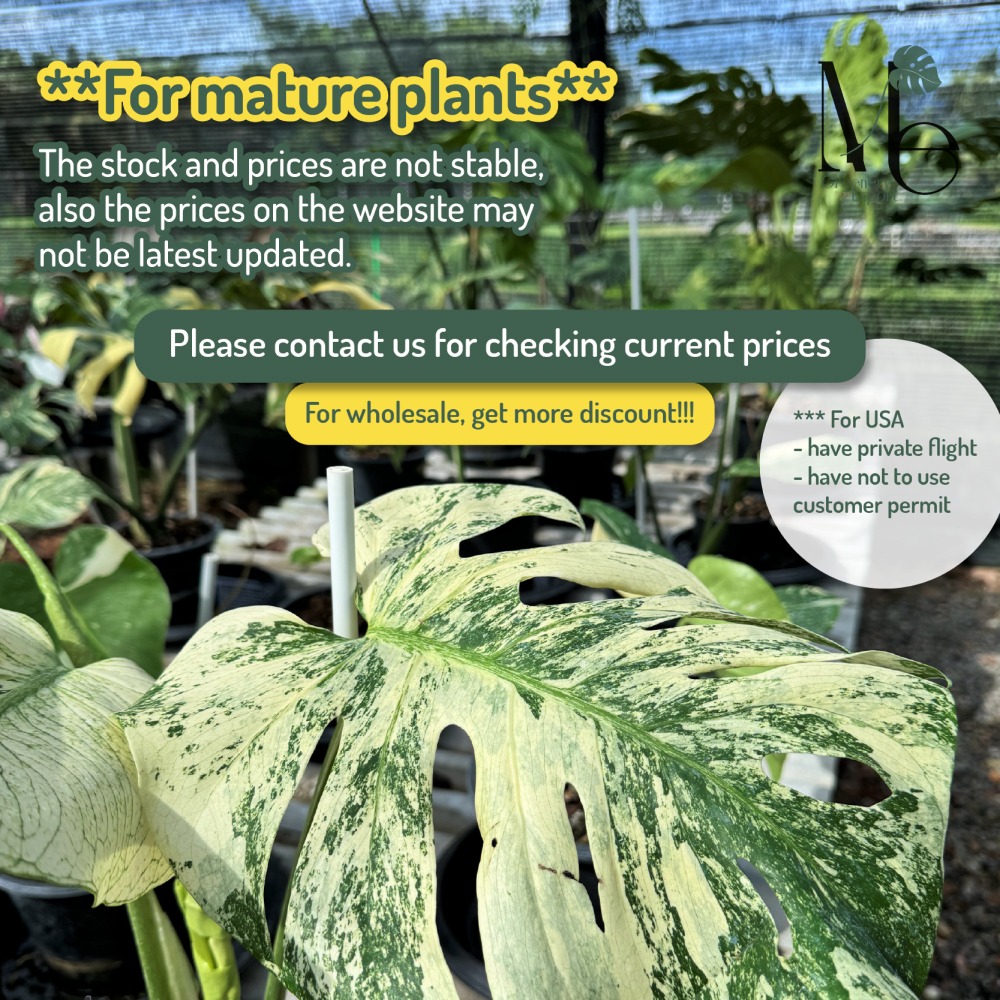No products in the cart.
3 Things You Should Know Before Importing Alocasia
DATE : May 1, 2023 By : admin
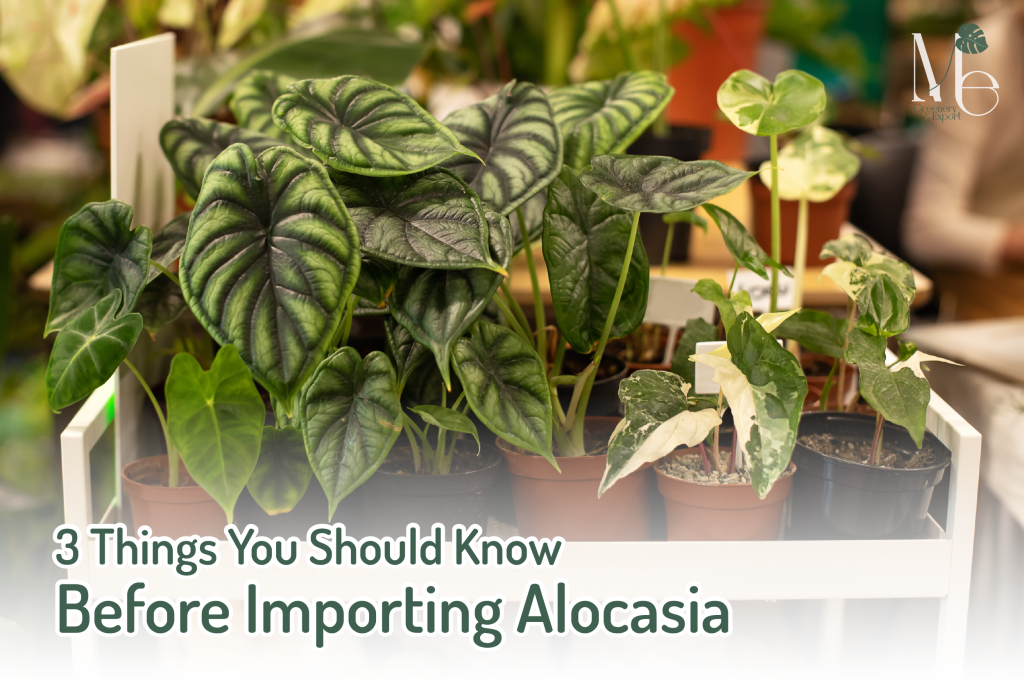
“Alocasia” is considered one of the hottest plants currently. Its beauty catches the eye of plant lovers and makes them want to plant it. Alocasia in Thailand is also famous for its beauty and many countries are popularly importing Alocasia from Thailand. However, you should remember that Alocasia is a delicate plant. Therefore, some people may encounter Alocasia getting damage problems and worry about importing it. Don’t worry. In fact, importing Alocasia can be done but it has a few precautions. Therefore, today we will tell you about “3 Things You Should Know Before Importing Alocasia”. If you want to know what will be there, let’s see!
-
Falling leaves
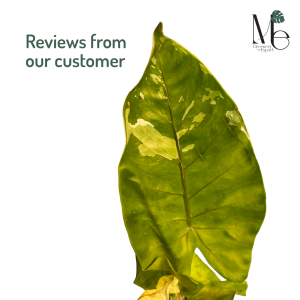
If you imported Alocasia and found that the leaves have fallen, do not worry. The falling leaves are normal due to the environment or the temperature changes quickly. The lack of water is another reason for the leaf drop as well.
-
Withered leaves
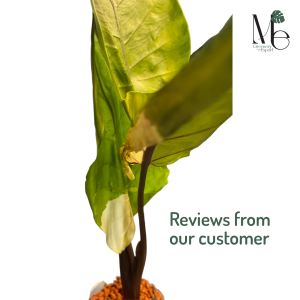
A common occurrence when exporting plants is leaf wilting which is caused by the loss of water. Plus, the plants must be packed in boxes to export. There is no water to keep the plants moist, and the air is dry. Thus, these can cause Alocasia leaves to wither.
-
Bruised leaves
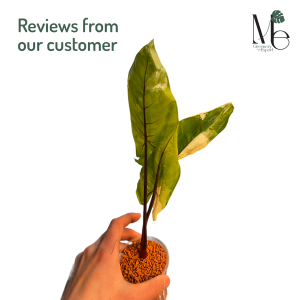
Bruised leaves from exporting Alocasia can occur for many reasons, whether lack of airflow or excessive swings in temperature and humidity. In addition, exporting Alocasia caused it to adjust to the new environment. Instead of being in a proper environment of temperature and humidity, it had to be in a hot, dark box. Most alocasia bruises from the tip of the leaf upwards and the edge of the leaf. However, bruised leaves are normal for exporting plants because the plants have to readjust to new environments.
Some people may be wondering and think is it really possible to import Alocasia after reading cause there are only disadvantages. The answer is Yes, it is. The most important thing is not the leaves; the “roots” can save the Alocasia and return the bloom and glorious leaves. If the root is safe, everything is fine!
How about the “3 Things You Should Know Before Importing Alocasia” that we have introduced? Do not worry about importing Alocasia from Thailand anymore because we can definitely export your beloved Alocasia to you. Finally, if you are interested in Alocasia but are still hesitant or have a question, we are happy to advise and export the best quality plants from Thailand to you every season.
See you again on the following topic, bye<3
References:

